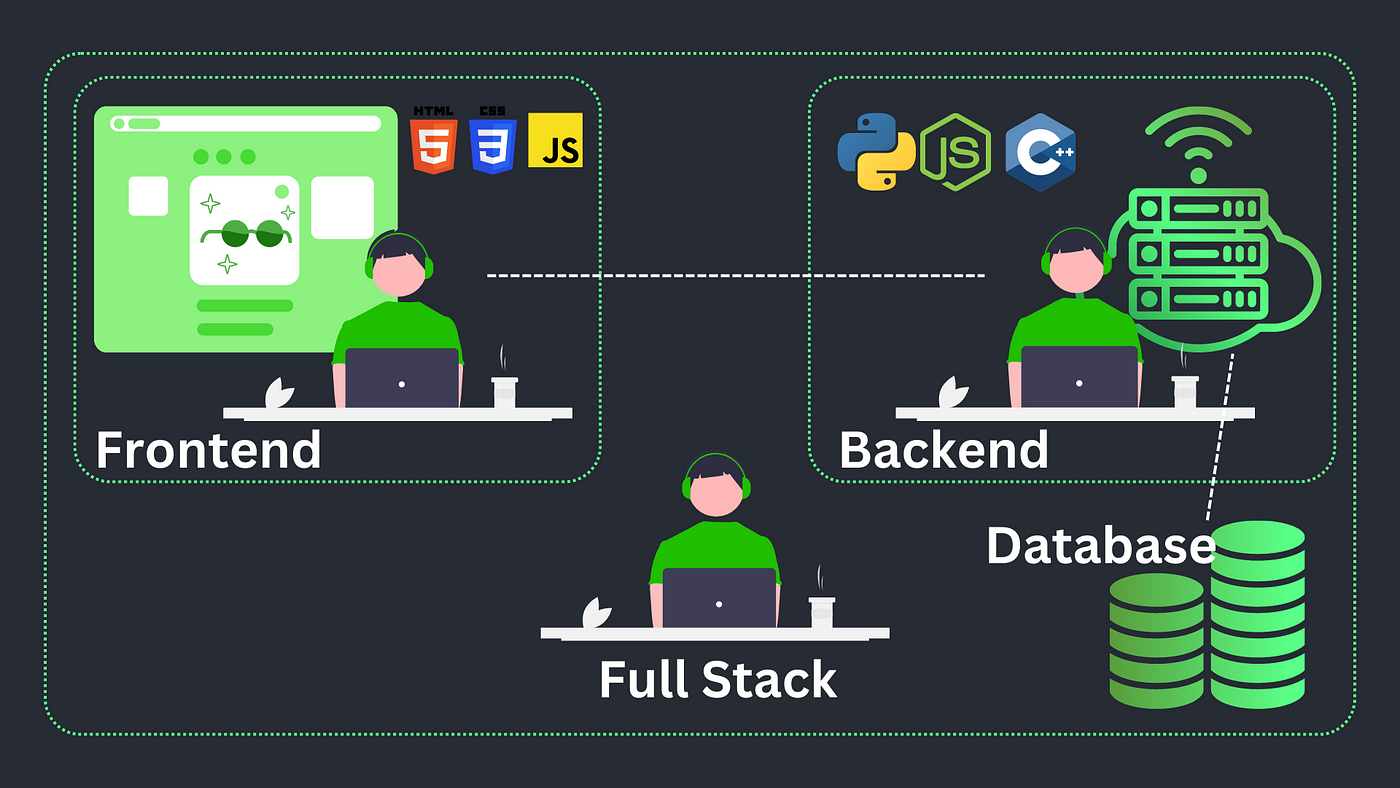
In the realm of web development, two primary domains hold significant importance: frontend and backend development. Frontend and backend developers work together to create fully functional websites and applications.
Frontend Development
Frontend development involves crafting the visual and interactive aspects of a website that users directly interact with. Frontend developers work with HTML, CSS, and JavaScript to design and implement the user interface, ensuring that web pages are visually appealing, responsive, and user-friendly. They also collaborate with designers to transform mockups and wireframes into functional web pages that work seamlessly across different devices and browsers.
Backend Development
Backend development, on the other hand, focuses on the server-side of web applications. Backend developers work with server-side languages (such as Python, Ruby, or PHP) and databases to handle data processing, server management, and application logic. They are responsible for the server architecture, handling data storage and retrieval, and ensuring the smooth functioning of the application’s core processes.
The choice between frontend and backend development largely depends on an individual’s interests, skills, and career goals. Neither frontend nor backend is inherently “better” than the other. Frontend developers typically enjoy crafting visually appealing user interfaces and delighting users with interactive elements. On the other hand, backend developers find satisfaction in building the backbone of web applications, handling data, and ensuring the overall performance and security of the system.
The salary for frontend and backend developers can vary based on factors such as experience, location, and the company they work for. Traditionally, backend developers have earned slightly higher salaries due to the complexity of their role and the specialized skills required to manage server-side operations. However, with the growing demand for seamless user experiences and responsive web applications, skilled frontend developers are also commanding competitive salaries.
Both frontend and backend development offer promising career prospects. The demand for frontend developers is rising as businesses recognize the significance of user experience and engagement. The growth of mobile applications and responsive web design has also amplified the need for skilled frontend developers. On the other hand, backend developers remain indispensable for building robust and scalable applications, and their expertise is sought after by tech companies and startups alike.
Frontend and backend development are two vital pillars of web development, each playing a crucial role in creating fully functional and user-friendly websites and applications. Frontend developers focus on crafting visually appealing user interfaces, while backend developers manage server-side operations and data processing. The choice between frontend and backend largely depends on your interests, skills, and career goals. Both roles offer promising career prospects and competitive salaries. The ideal path for you will depend on your passion, strengths, and desire to create innovative and impactful digital experiences.


